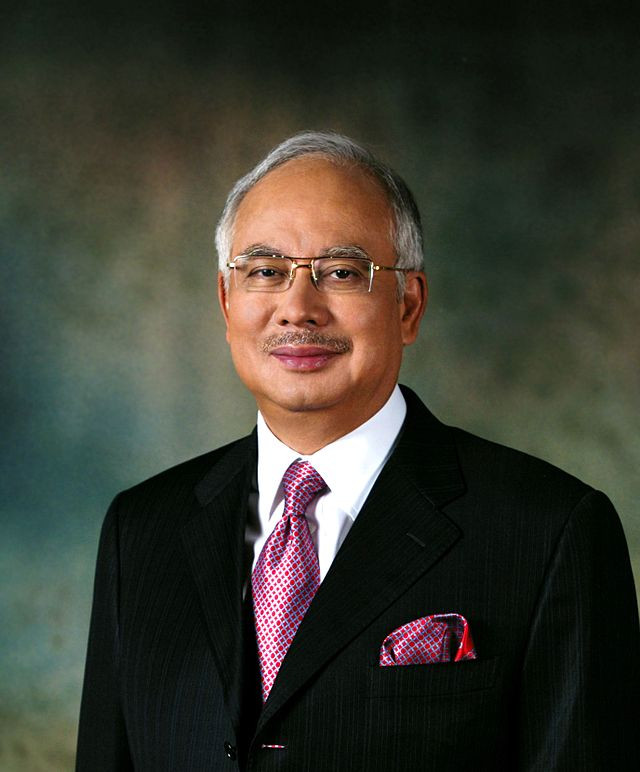A Malaysian court has discharged former Prime Minister Najib Razak and ex-Treasury Secretary-General Irwan Serigar Abdullah from corruption charges related to the infamous 1Malaysia Development Berhad (1MDB) scandal.
The Kuala Lumpur High Court granted the pair a "discharge not amounting to an acquittal" (DNAA) on Wednesday, citing delays in the prosecution and its failure to provide key documents required under Malaysian law. Both men had faced charges for criminal breach of trust involving 6.6 billion ringgit ($1.48 billion) linked to a settlement agreement between 1MDB and Abu Dhabi's International Petroleum Investment Company.
Justice Muhammad Jamil Hussin, presiding over the case, stated that the prosecution's failure to comply with Section 51A of the Criminal Procedure Code-mandating the disclosure of specific documents before trial-necessitated the decision. The judge emphasized that the DNAA does not prevent the charges from being refiled in the future. "The DNAA order does not prejudice the prosecution's case. The prosecution could still re-charge them again," Justice Jamil said.
The prosecution's inability to meet procedural requirements has drawn heavy criticism. Senior analyst Halmie Azrie Abdul Halim of political consultancy Vriens & Partners described the handling of the case as a glaring lapse in competence. "Six years is more than enough to share relevant documents. If they couldn't share the documents, citing the Official Secrets Act (OSA), then the prosecution should have withdrawn the case earlier," he said. Critics argue that the decision reflects poorly on Malaysia's Attorney-General's Chambers (AGC), undermining public confidence in its ability to handle high-profile cases.
Human rights advocate Jerald Joseph from Pusat Komas expressed concern over the lack of transparency, stating that the public deserved immediate and credible explanations for the prosecution's failures. "Why did they fail the public this time? Any such perceived incompetency would raise suspicions of political interference," Joseph said. Electoral reform group Bersih joined the chorus of criticism, with executive director Ooi Kok Hin calling for the AGC to publicly clarify its shortcomings. "This helps to prevent real and perceived executive interference in high-profile cases involving senior politicians," Ooi stated.
The DNAA decision has reignited debate over the remaining charges against Najib, who is currently serving a reduced six-year sentence for a separate corruption conviction involving 42 million ringgit from SRC International, a former subsidiary of 1MDB. That sentence was halved earlier this year by a Pardons Board chaired by Malaysia's former king. Najib faces additional trials, including one beginning in December over allegations that he misappropriated 2.28 billion ringgit from 1MDB. Another trial is scheduled for April 2025, involving charges of laundering funds from SRC International.
Critics contend that Wednesday's ruling might embolden Najib's defense to argue that the charges against him are politically motivated. Najib's lawyer, Muhammad Shafee Abdullah, described the sheer volume of legal cases against his client as "carpet-bombing," claiming that it has overwhelmed both the defense team and Najib himself. This narrative, analysts warn, could resonate with Najib's supporters and further polarize public opinion.
The implications of the court's decision extend beyond Najib's legal battles. Sociopolitical analyst Awang Azman Awang Pawi from Universiti Malaya said that high-profile DNAA rulings could influence Malaysia's political dynamics, especially when they involve prominent figures like Najib. "Such outcomes may affect public support for political parties and alter the political landscape," Awang Azman said.
The decision also casts a shadow over Prime Minister Anwar Ibrahim's anti-corruption agenda. Critics have accused Anwar's administration of backsliding on reform promises, particularly after the government announced plans to introduce house arrest legislation for certain offenses next year. While officials deny that the proposed law is tailored to benefit Najib, skepticism remains widespread.
The 1MDB scandal, often described as one of the world's largest financial frauds, saw approximately $4.5 billion allegedly embezzled in a complex web of transactions spanning multiple countries. International scrutiny has intensified pressure on Malaysia to deliver justice in the case. Despite Wednesday's ruling, many questions remain about the nation's commitment to accountability and the integrity of its legal system.






